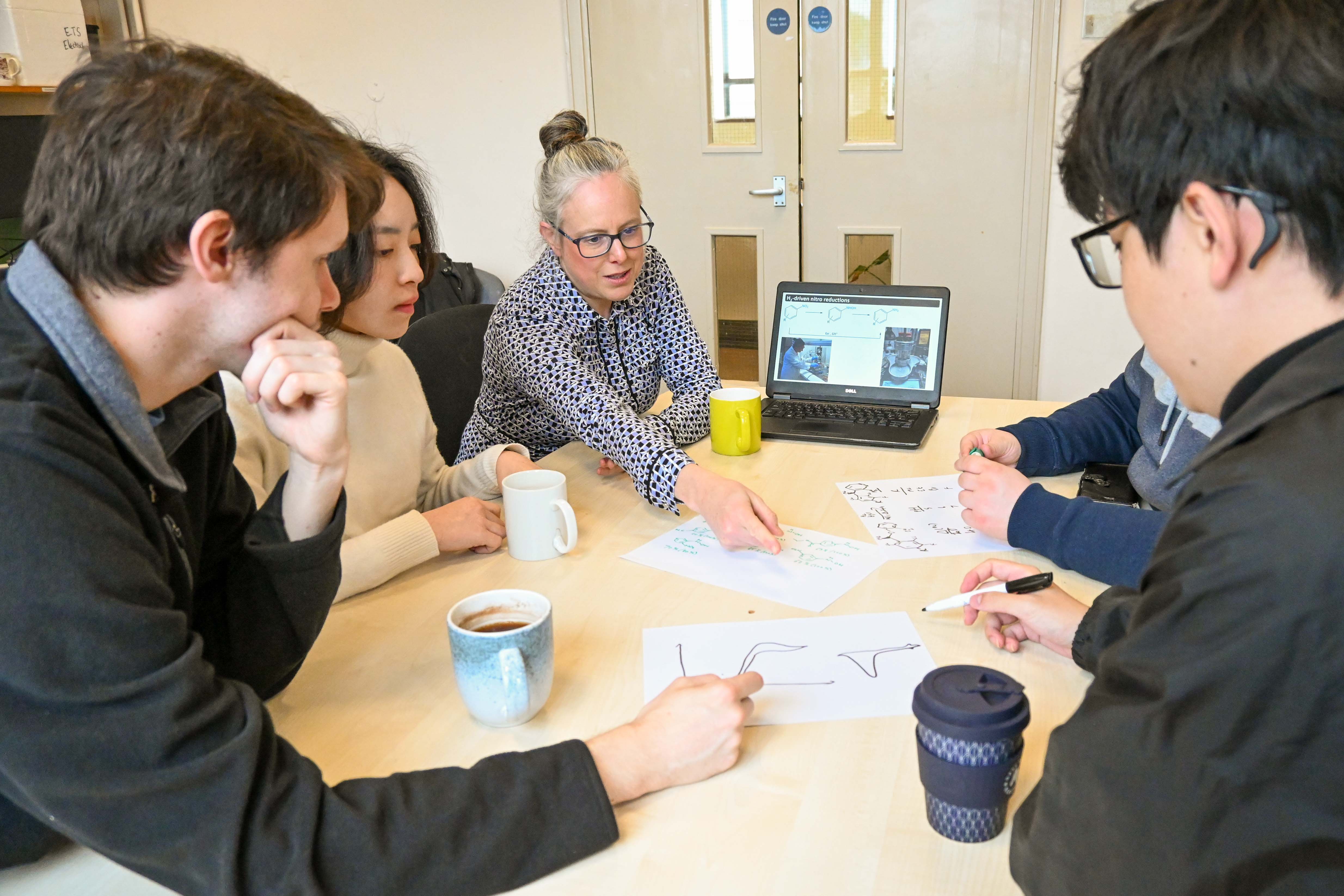The Royal Society of Chemistry Prizes have celebrated excellence in the chemical sciences for more than 150 years. The 2025 Prizes recognise two individual Oxford academics who are helping to lay the scientific foundations for a cleaner, electrified energy future – from more efficient batteries to smarter solar technologies. A collaboration led by Oxford University also received a Horizon Prize for developing a cheaper and more sustainable method to manufacture important amine compounds.
I am delighted and very honoured to receive this award from the Royal Society of Chemistry. I would like to acknowledge and thank the fantastic contributions from my research group – both past and present.
, Department of Materials, University of Oxford
Professor Islam’s award recognises his pioneering work to develop next-generation materials to help deliver new clean energy technologies. In particular, his research uses powerful computer modelling techniques to reveal the atom-scale processes underpinning the properties of lithium battery materials for electric vehicles and a new type of solar cell compound called perovskite.
He said: ‘Low carbon energy is one of the most urgent challenges of our time in tackling climate change. The next generation of green energy technologies depends on new materials and greater understanding. My research philosophy is to combine a deeper atomic-scale understanding of energy materials with experimental investigation.’
Professor Islam currently leads the Faraday Institution CATMAT project, which is researching next-generation cathode materials that could significantly increase the energy density of lithium-ion batteries. He has received several awards including the 2022 Royal Society Hughes Medal and 2020 American Chemical Society Award in Energy Chemistry. He presented the 2016 BBC Royal Institution Christmas Lectures on the theme of energy, which included a Guinness World Record lemon battery, made from 3000 lemons.
Looking at the list of past recipients of this award, I see many scientists I have admired—and continue to admire. I’m proud to be in their company and hope to live up to the standard they have set.
Electrification is a key strategy in the global transition to renewable energy and the pursuit of a net-zero carbon future. At the centre of this transformation are lithium-ion batteries, which currently dominate the energy storage landscape. However, growing concerns about their cost, environmental impact, and performance have raised critical questions about their ability to fully support the electric revolution.
Professor Pasta’s research focuses on advancing next-generation battery chemistries through the development of novel electrolytes. In particular, he investigates the link between electrolyte transport and thermodynamic properties, and their correlation with the electrochemical, chemical, and mechanical properties of the solid electrolyte interphase.
He said: ‘I am deeply grateful to all current and former members of my research group, as well as to my colleagues and collaborators—this award is as much theirs as it is mine. I feel truly fortunate to work alongside such a talented and diverse group of people.’

Professor Kylie Vincent (centre) leads a team meeting with Oxford University members of the Biocatalytic Nitro Hydrogenations team.
The Biocatalytic Nitro Hydrogenations team, awarded a Chemistry Biology Interface Horizon Prize.
The Biocatalytic Nitro Hydrogenations team, led by Professor Kylie Vincent in the Department of Chemistry, been awarded one of the Royal Society of Chemistry’s Horizon Prizes, which celebrate discoveries and innovations that push the boundaries of science. The team is a collaboration between Professor Vincent’s group and HydRegen, a spin-out from the University of Oxford.
The prize recognises the group’s achievements in developing a greener process to synthesise amine-containing chemicals. Turning nitro compounds into amines is a vital step in making many medicines, agrochemicals, and materials. However, current industrial methods often rely on wasteful chemicals or expensive precious metal catalysts, which can be inefficient and lack selectivity.
It is wonderful to have recognition for the diverse, yet crucial, contributions from so many people who have worked on different aspects of this catalyst system – from the very first demonstration, through to our experiments to understand the mechanism, right through to large-scale application.
Professor Kylie Vincent, Department of Chemistry, University of Oxford
Professor Vincent said: ‘Our new biological catalyst technology provides a selective and sustainable way of preparing amine compounds which avoids heavy metals, and offers environmental and cost advantages over conventional methods. The system exploits an enzyme called hydrogenase, which can split hydrogen gas to release electrons and protons. The key to our success was finding a way to channel these protons and electrons into nitro-functional groups to facilitate their reduction to amines.’
The team report that their system can cut costs by 40% and reduce carbon dioxide emissions by a factor of three compared to traditional metal-based processes. Following support from Oxford University Innovation (OUI) to patent this innovation, the technology is now licensed to HydRegen who have made tremendous progress in scale-up for commercial application. Ultimately, this innovation could allow cleaner, cheaper, and more sustainable manufacturing - from essential medicines like paracetamol to complex pharmaceutical ingredients.
Further information about the 2025 Prize winners can be found on the Royal Society of Chemistry website.













